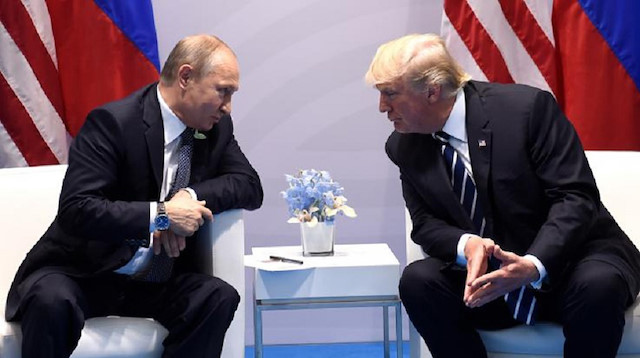

File photo: Trump- Putin meeting
AGGRAVATING TENSIONS
The dispute is aggravating the worst U.S.-Russia friction since the Cold War ended in 1991. Some experts believe the treaty’s collapse could undermine other arms control agreements and speed an erosion of the global system designed to block the spread of nuclear arms.
Trump has sought to improve U.S. relations with Russia after a chill during the tenure of his predecessor, Barack Obama. He and Russian President Vladimir Putin spoke by phone on Wednesday about Siberian wildfires and trade.
Arms control did not come up in the call, the officials said.
European officials have voiced concern that if the treaty collapses, Europe could again become an arena for nuclear-armed, intermediate-range missile buildups by the United States and Russia.
The officials said the United States was months away from the first flight tests of an American intermediate-range missile that would serve as a counter to the Russians. Any such deployment would be years away, they said.
"We are just at the stage of looking at how we might further the development of conventional options," one official said.
Trump has said he would like to see a "next-generation" arms control deal with Russia and China to cover all types of nuclear weapons.
He has broached the topic individually with Putin and Chinese President Xi Jinping, including at the G20 summit in Osaka in June.
China is not a party to nuclear arms pacts between the United States and Russia and it is unclear how willing Beijing would be to be drawn into talks.
China's Foreign Ministry has reiterated that the country had no interest in joining such talks.
#1987 arms control accord
#trump
#Russia

